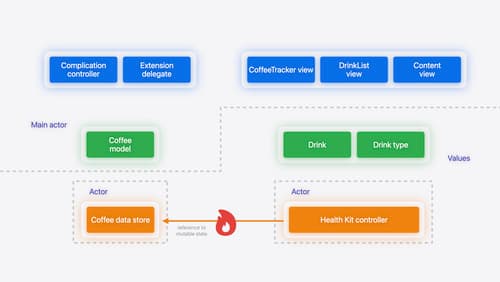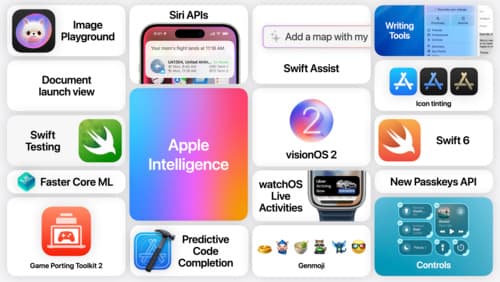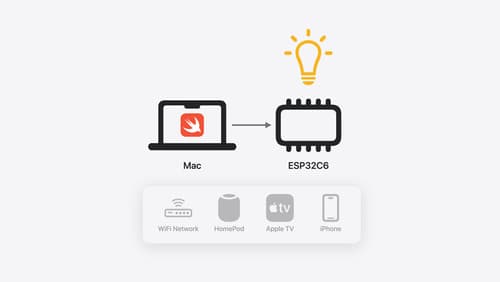How can I use Swift 6 to sent satellite messages?
Asked on 2024-07-30
1 search
To send satellite messages using Swift 6, you would likely need to leverage Swift's interoperability with C and C++ to interact with the specific APIs provided by the satellite communication hardware or SDK. Here are some steps and considerations based on the content from WWDC:
-
Interoperability with C/C++: Swift 6 continues to improve its interoperability with C and C++, making it easier to use existing APIs from these languages within Swift code. This is crucial for working with low-level hardware APIs, such as those for satellite communication.
- What’s new in Swift (21:27): "Swift can interoperate directly with C, providing a seamless developer experience and zero bridging costs. We've continued to expand the interoperable language features, and with Swift six C virtual methods, default arguments, moon only types, and crucial C standard library types can be directly imported into Swift."
-
Embedded Swift: If you are working on an embedded device, you can use Embedded Swift, which is designed for programming on such hardware. This includes using Swift to call C APIs for hardware control.
- Go small with Embedded Swift (06:19): "Swift's interoperability gives us access to all the APIs in the vendor's SDK if I want to control the LED on the device, I can use the existing C APIs in the SDK for that."
-
Swift 6 Language Mode: Swift 6 introduces a new language mode that provides data race safety guarantees, which is important for concurrent programming often required in communication protocols.
- What’s new in Swift (26:07): "Swift Six improves portability performance, and the overall developer experience. It also introduces the Swift Six language mode, providing data race safety guarantees that help you write correct concurrent programs."
-
Using Swift for Embedded Projects: You can incrementally adopt Swift in your embedded projects, leveraging its safety and performance benefits while still using existing C/C++ code where necessary.
- Go small with Embedded Swift (02:44): "When writing code that runs on an embedded device, you often need to interact with low level hardware registers. To help you with that, we have published Swiftmmio, a library that provides APIs for safe, structured and ergonomic operations on memory mapped registers."
By combining these capabilities, you can write Swift code that interacts with the satellite communication hardware's C/C++ APIs, ensuring that your application is both safe and performant. If you need more specific guidance on the APIs or hardware you are using, you might want to check the documentation provided by the hardware vendor or SDK.

Migrate your app to Swift 6
Experience Swift 6 migration in action as we update an existing sample app. Learn how to migrate incrementally, module by module, and how the compiler helps you identify code that’s at risk of data races. Discover different techniques for ensuring clear isolation boundaries and eliminating concurrent access to shared mutable state.

Platforms State of the Union 5-Minute Recap
Watch a quick recap of the newest advancements on Apple platforms.

Go small with Embedded Swift
Embedded Swift brings the safety and expressivity of Swift to constrained environments. Explore how Embedded Swift runs on a variety of microcontrollers through a demonstration using an off-the-shelf Matter device. Learn how the Embedded Swift subset packs the benefits of Swift into a tiny footprint with no runtime, and discover plenty of resources to start your own Embedded Swift adventure.
